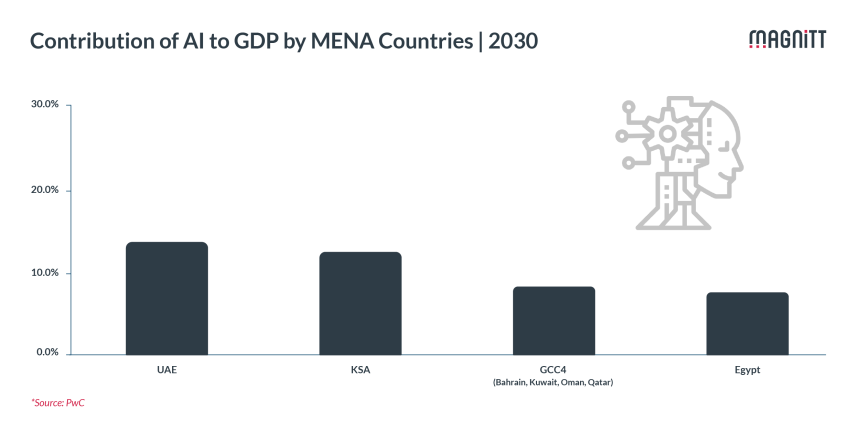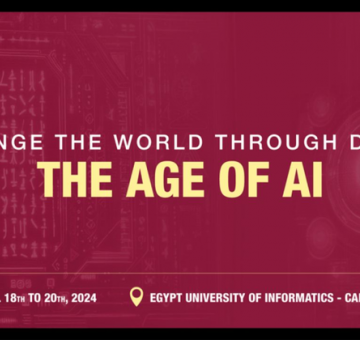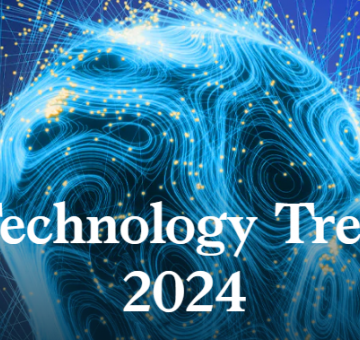Potential impact of AI apps on Egypt and the Middle East

According to Google's report “The Future of Artificial Intelligence in the Middle East and North Africa” AI will create $320 billion worth of value in the Middle East and North Africa region by 2030 as published on Daily News Egypt. Its economic contribution is expected to grow by 20-34% annually across the region, with the highest rates expected in the United Arab Emaciates and Saudi Arabia.
The report says that AI contribution to Egypt’s GDP will be 10% by 2030, while it will reach about 14% in the UAE and about 13% in Saudi Arabia.
Countries in the Middle East and North Africa, over the past few years, have published their AI strategies. In 2017, the UAE was the first country to introduce its AI strategy, followed by Egypt in 2019. Saudi Arabia and the UAE both have government-led initiatives related to AI strategies. The Saudi strategy is integrated into the country’s Vision 2030.
Google’s report highlights that AI adoption is accelerating, driven by the value of AI-powered automation, remote work, and shifts in consumer behavior. E-commerce and retail sectors have experienced a surge due to Covid-19 pandemic-related store closures, leading to improved customer experiences through data collection and AI integration.
Moreover, the Fourth Industrial Revolution is reshaping industries with advancements in machine learning and big data analytics. Fintech, in particular, is a sector that is highly financed and employs AI for fraud detection and investment analysis.
In healthcare, AI's impact is profound, notably in diagnostics, telemedicine, and drug discovery. Countries like the UAE and Saudi Arabia are actively employing AI systems for COVID-19 detection and diabetic retinopathy diagnosis.
Despite the faced challenges, AI promises significant benefits for the MENA region's economy and society. However, concerns about job displacement are prevalent, according to McKinsey’s report estimating that 45% of current Middle Eastern jobs could be automated by 2030. Nonetheless, this shift also presents opportunities for re-skilling and increased productivity, empowering companies to thrive in the era of AI and automation.





































































EgyptInnovate site is not responsible for the content of the comments